Intergenerational Leaders Exchange gathers diverse community of Northeastern graduates, families and friends
The program featured discussions on topics such as investing in the future, leadership lessons and business succession planning.
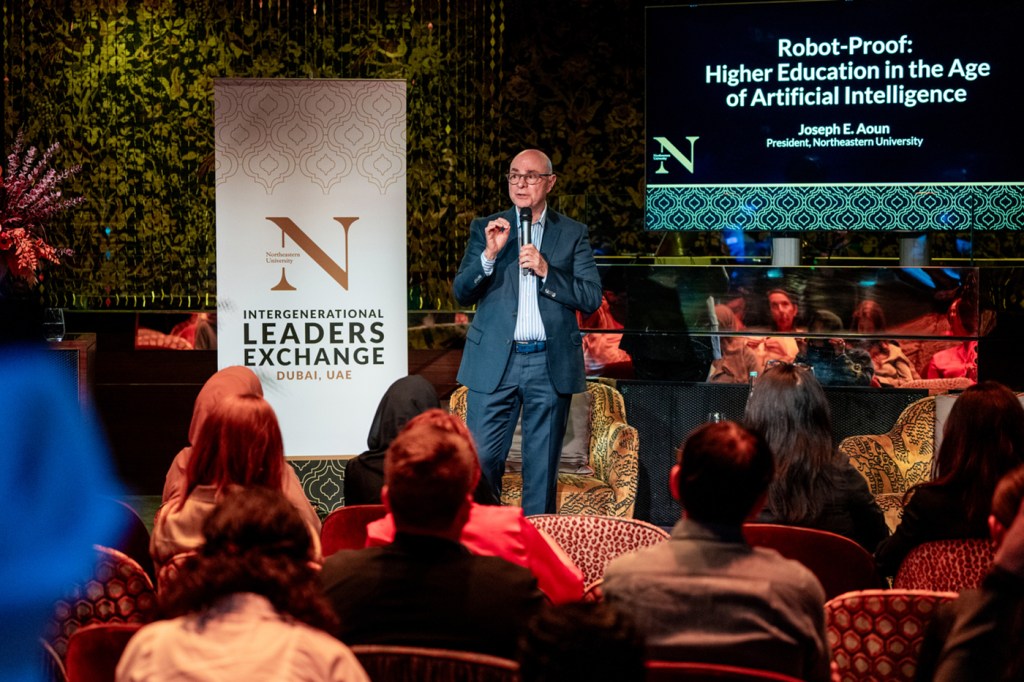
Northeastern President Joseph E. Aoun delivered a powerful message of human capability at the university’s Intergenerational Leaders Exchange conference in Dubai.
Addressing the potential of artificial intelligence surpassing human intelligence, Aoun emphasized the importance of humans continuously acquiring knowledge to stay ahead of machines.
The biggest advantage humans have over AI, he said, is the ability to understand and apply knowledge across different contexts.
He emphasized higher education’s role in making people robot-proof, “to master humanics, and master the three literacies,” he said.
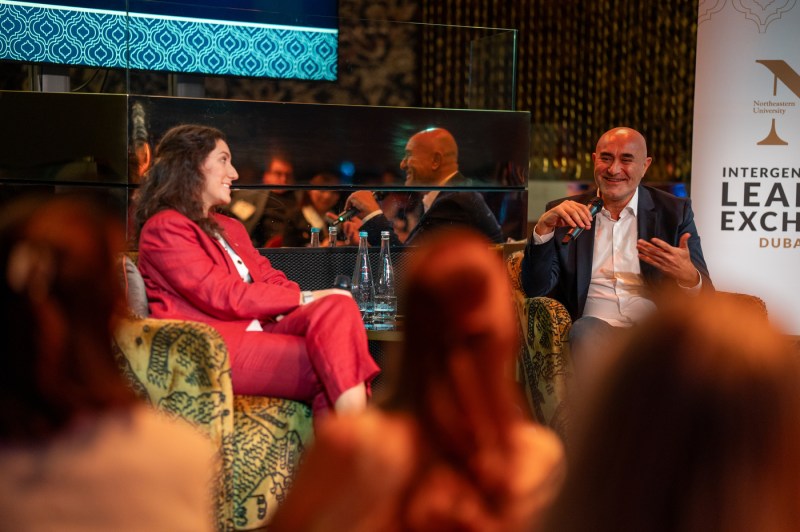
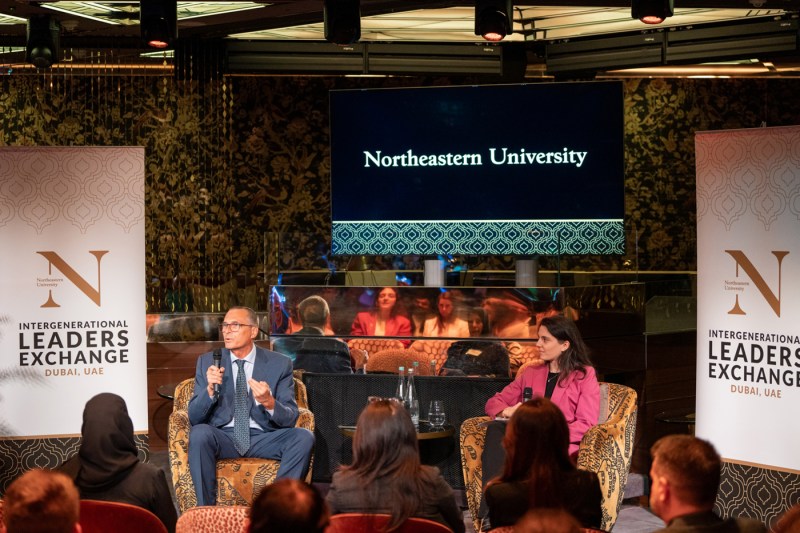
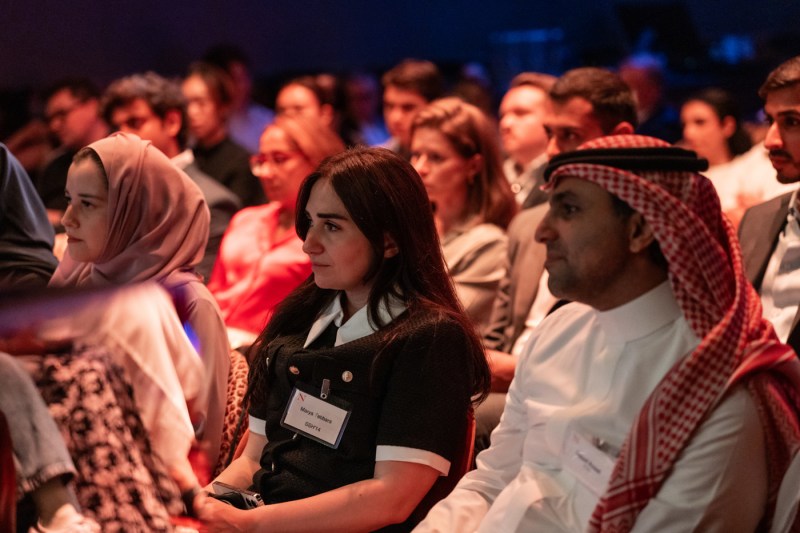
In his book, “Robot-Proof: Higher Education in the Age of Artificial Intelligence,” he lays out the three literacies: technological literacy, data literacy and human literacy. Together, they comprise “humanics,” an integration of the three literacies that allow students to take the knowledge gained from one domain and apply it to “a very different domain.” Something, he said, machines cannot do.
Aoun talked about the power of experiential learning. He added that the three literacies must be put into practice in an experiential setting — by participating in co-ops and internships.
“Knowledge is becoming a commodity, experience is not,” he said.
The multi-day conference gathered a diverse and vibrant community of Northeastern graduates, parents and supporters. In addition to sessions on topics such as family enterprise, art and entrepreneurship, the exchange offered immersive experiences to iconic landmarks and family-run businesses.
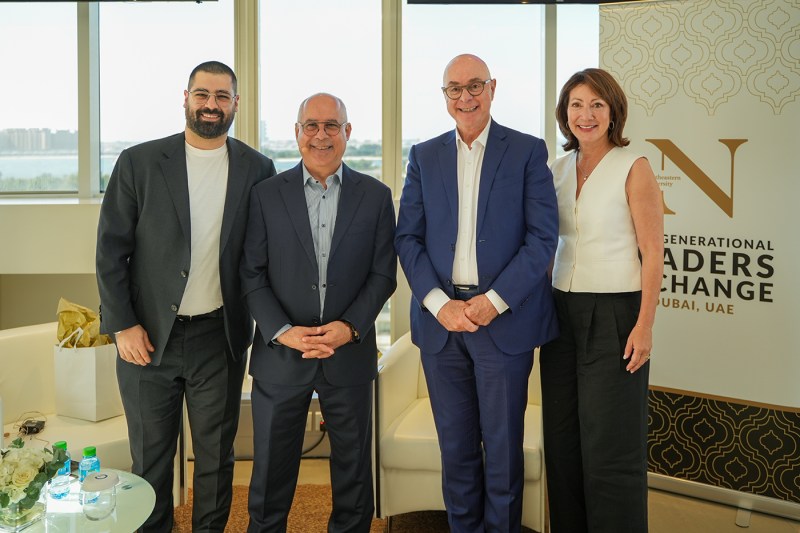
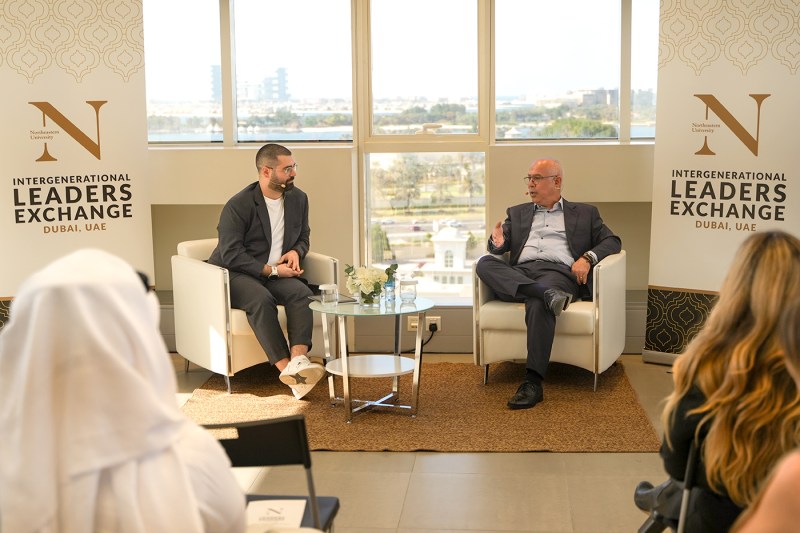
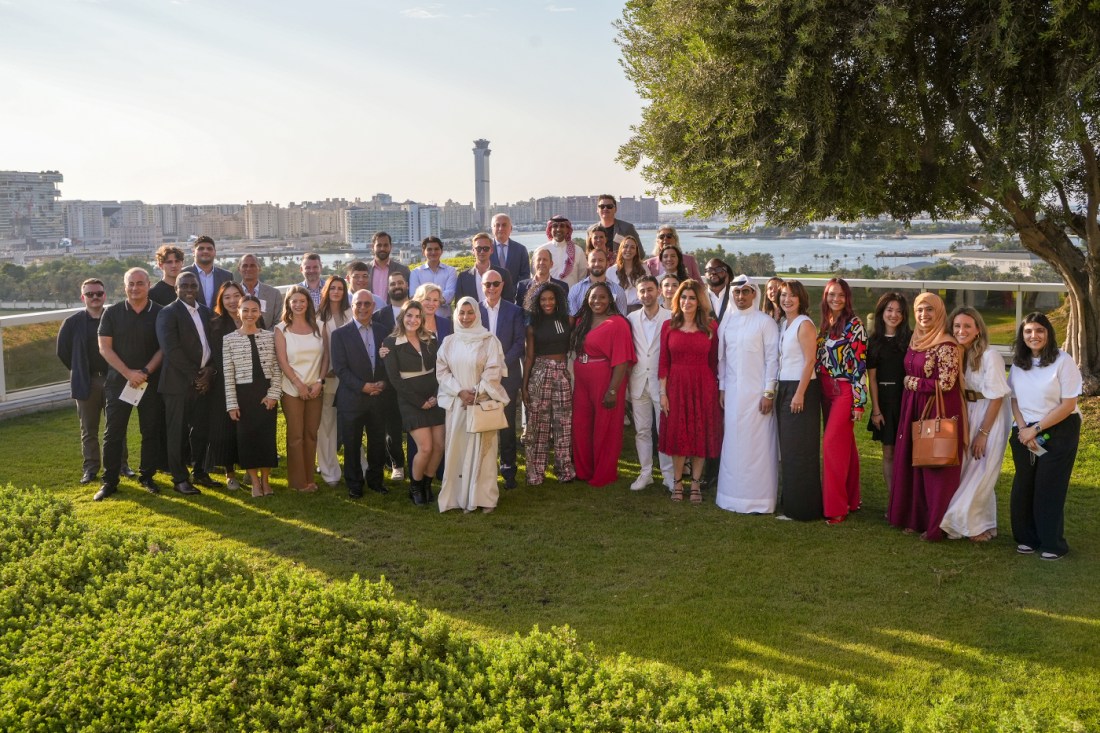
The program was shaped and hosted by Northeastern families and graduates, including Drishti Dhamani (Class of 2021), Rahul Waney (Class of 2019) and Clemence Cazeau (Class of 2017).
‘An Entrepreneurial Journey’
In a session titled “An Entrepreneurial Journey,” double Huskies Ronaldo Mouchawar and Andrea Dorta Munoz, a Young Global Leader, discussed Mouchawar’s journey from working at his father’s irrigation business in Syria, to studying engineering at Northeastern, to founding a business, to becoming vice president for Amazon operations in the Middle East and North Africa.
In 2005, Mouchawar started an e-commerce platform called Souq.com at a time when Amazon considered the region very hard to enter. Mouchawar had a vision of connecting consumers to small and medium merchants from Dubai to Damascus to Cairo.
“We didn’t know how complicated this problem was,” Mouchawar said.
For starters, Souq.com had to overcome a poor addressing system in the region to create a delivery network and guarantee prompt delivery. Souq.com also had to be its own bank, allowing customers to make online payments because lenders there did not allow them.
The platform’s success culminated in its acquisition by Amazon for $580 million in 2017. Today, Amazon MENA employs about 20,000 people in the region.
“It’s been amazing to see the proliferation of knowledge and technology into the region,” Mouchawar said. “As long as we’re empowering people in this region, and if technology and the tools we build are helping people develop, it’s a fully satisfying role and job.”
As a member of the Dubai Future Council on Artificial Intelligence, Mouchawar advocates for adoption of technology and AI and creation of a more robust digital economy.
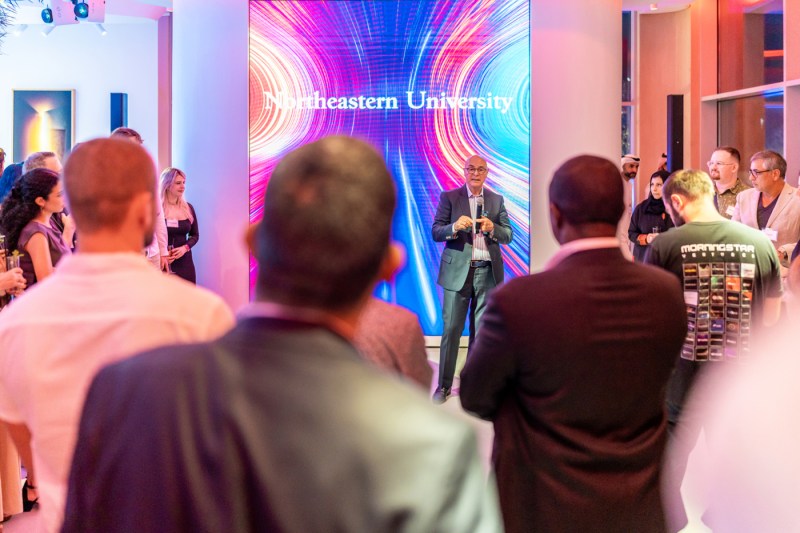
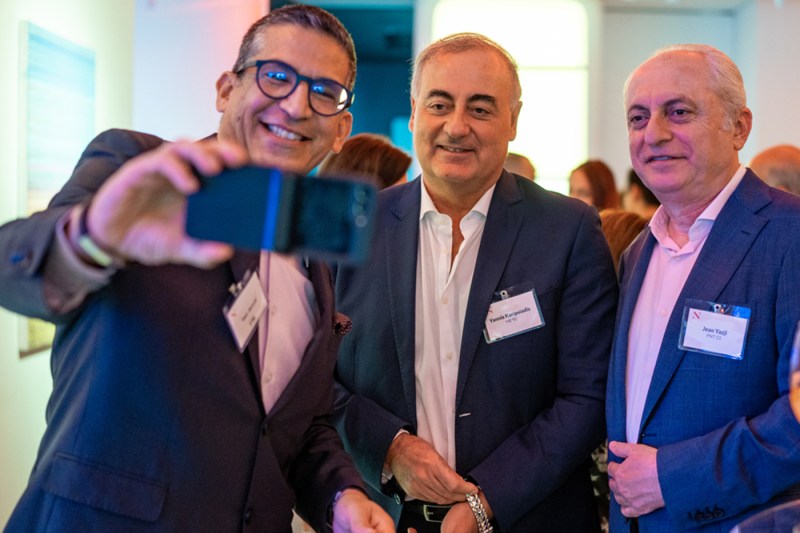
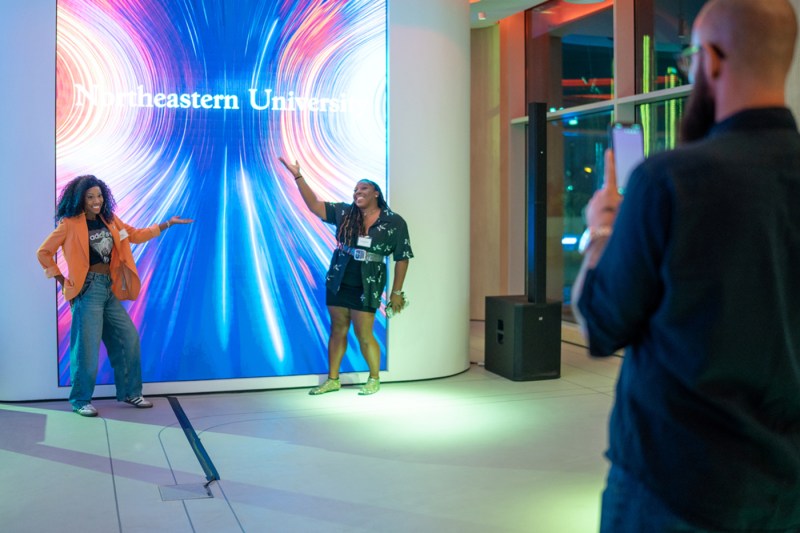
Mouchawar highlighted his joy of giving back by mentoring younger entrepreneurs. He serves as a judge on Northeastern’s Women Who Empower Innovator Awards.
“I love entrepreneurs,” Mouchawar said. “People think we are giving time to mentor. Actually, you’re also learning — these entrepreneurs are super smart.”
‘A Family Approach to Amplifying Voices’
Pierre Choueiri is chair and CEO of Choueiri Group, a Middle East media solutions and advertising business started by his father in the late 1960s. Echoing Aoun, he said his business stays relevant by continuing to learn.
“Life is a continuous learning process,” said Choueiri, the father of two Northeastern graduates.
Antoine Choueiri (class of 2016) took part in a discussion with his dad titled “A Family Approach to Amplifying Voices.” Antoine is a Northeastern Young Global Leader and a sales manager at InMotion, a Choueiri Group company.
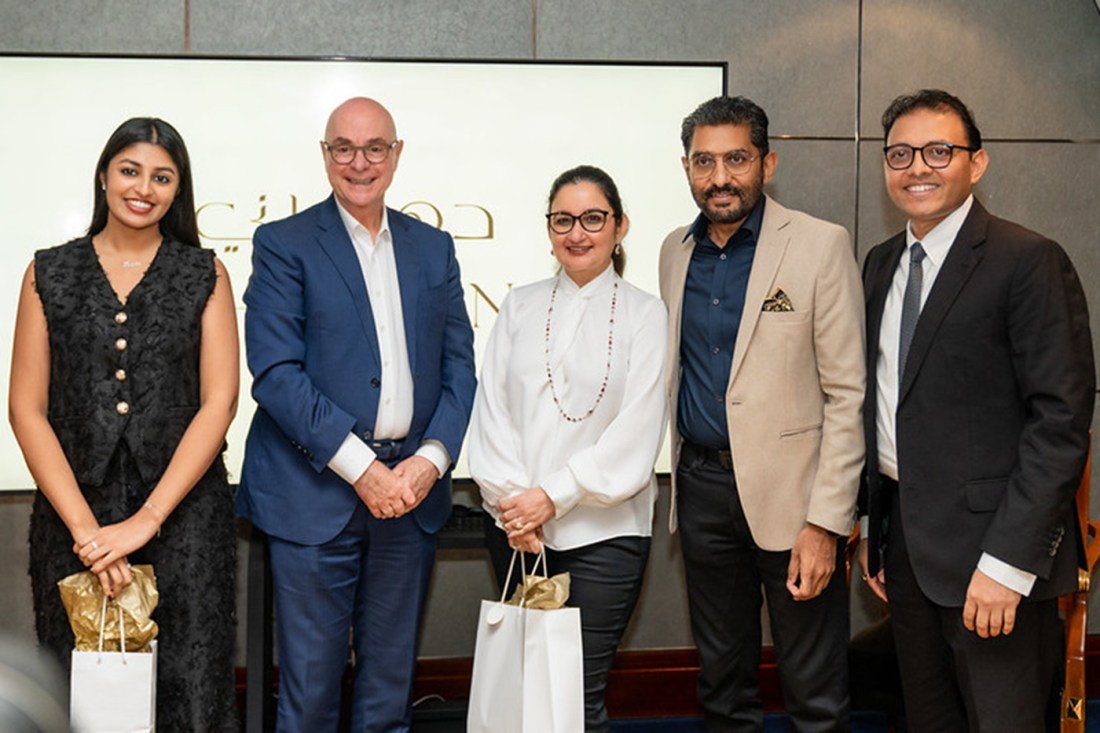
An entrepreneur, Pierre Choueiri said he challenges himself and is never satisfied. He must remain “the creator,” he said, to avoid becoming “a slave” of “the machine.”
‘The Art of Curating a Successful Succession’
Maya Samawi, a 2019 Northeastern graduate and Young Global Leader, led a conversation on “The Art of Curating a Successful Succession” with her mother, Jouhayna Samawi.
Editor’s Picks
Jouhayna co-founded Ayyam Gallery with her husband in 2006 in Damascus to showcase Middle Eastern artists internationally.
Maya now runs the Dubai-based gallery.
“She wanted to take over,” Jouhayna said. “She’s as passionate as we are.”
Maya now curates shows and researches new artists and opportunities, while Jouhayna focuses on sales.
“We work very well together,” Jouhayna said. “I’m pleased to call her my boss.”
Jouhayna credited her husband’s decision to step back as pivotal in enabling Maya’s rise, stressing the importance of communication and shared decision-making in family businesses.
‘Shaping Strategy and Seizing Opportunities’
Sofia Malferrari, a 2021 Northeastern graduate, Young Global Leader and strategy consultant for Accenture Middle East, moderated a session with her father, Stefano Malferrari, focused on “Shaping Strategy and Seizing Opportunities.”
Stefano, a senior business adviser and seasoned banker with deep knowledge of succession planning said only 10% of family businesses survive to the third generation.
He said families should invest in higher education for the family members, while transferring values and culture to the next generation. A structured succession plan is crucial to ensure business longevity.
“The real assets of the family are its individuals,” said Stefano, who serves as a senior business adviser at Notarify, one of the leading international blockchain and AI service providers.
‘Investing In The Future’
In another session, Mohammad Al Wazzan, chair emeritus of the Young Global Leaders and a double Husky (class of 2012 and 2016) led a conversation about “Investing In The Future.”
Al Wazzan stressed the importance of forging meaningful connections instead of just networking for the sake of networking. Asking others the right questions, he said, helps personal growth.
“These are the connections that I implore you to forge,” Al Wazzan said. “Every single one of you here has something that they can share with the person next to them.”










